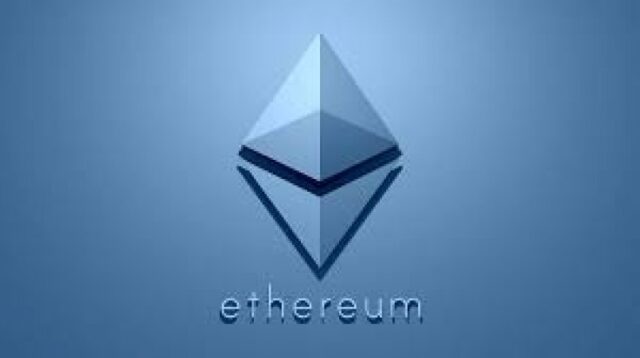Ethereum, a revolutionary blockchain platform, transcends mere technological innovation. Its decentralized architecture and programmable functionalities hold immense promise for reshaping various facets of our society.
However, alongside this potential lie significant philosophical and societal challenges that demand ETH’s careful consideration as it evolves. This paper explores six critical issues that will determine Ethereum’s future trajectory and its broader impact on the world.
1. The Decentralization Dilemma: Striking a Balance Between Autonomy and Security
-
Core Challenge: Ethereum’s core tenet of decentralization empowers individuals with control over online transactions. However, this raises concerns regarding the lack of regulatory oversight, potentially facilitating illegal activities like money laundering.
-
Professional Analysis: Finding an equilibrium between decentralization and regulatory intervention presents a significant challenge. While robust security measures are crucial, excessive oversight can stifle innovation and undermine the very principles upon which Ethereum is built. Exploring potential solutions such as Know Your Customer (KYC) regulations, implemented by some blockchain companies, could offer a path forward. Examining historical examples, like the evolution of regulations in the American Wild West, can provide valuable insights into establishing order and prosperity within a decentralized framework.
2. Sustainability Question: Mitigating Ethereum’s Environmental Footprint
-
Core Challenge: ETH‘s prior reliance on a highly energy-intensive system has sparked conversations about its environmental impact. Although the recent switch to a proof-of-stake consensus mechanism demonstrates a commitment to sustainability, questions remain regarding its long-term efficacy.
-
Professional Analysis: Ethereum’s transition to proof-of-stake represents a crucial step towards environmental sustainability. A comprehensive analysis comparing Ethereum’s energy consumption before and after this shift can quantify the positive impact. Further exploration of upcoming advancements like sharding offers promising possibilities for even greater reductions in energy usage. It is also pertinent to acknowledge alternative blockchain platforms built with sustainability as a core principle.
3. Ethereum’s Place in a Multi-Blockchain World: The Interoperability Paradox
-
Core Challenge: Interoperability, the ability of different blockchains to communicate and share data, is critical for creating a unified digital economy. While Ethereum aspires to be a leader in this domain, achieving interoperability without compromising its unique features and functionalities presents a significant hurdle.
-
Professional Analysis: Fostering interoperability between disparate blockchains is essential for maximizing the potential of blockchain technology. Initiatives like Cosmos and Polkadot, designed specifically to address interoperability challenges, deserve exploration. A clear understanding of the technical complexities involved in achieving seamless communication across various blockchain networks is crucial. The analogy of national power grids needing to be compatible for efficient energy exchange offers a more universally understood comparison in this context.
4. The Innovation vs. Stability Dilemma: Balancing Progress with Security
-
Core Challenge: Ethereum’s relentless pursuit of innovation pushes the boundaries of technology. However, this relentless drive for progress can sometimes come at the expense of stability, potentially introducing security vulnerabilities.
-
Professional Analysis: While continuous innovation is vital for Ethereum’s growth, it must be balanced with robust security measures. The concept of sharding in Ethereum 2.0 warrants careful examination, considering both its potential benefits for scalability and the potential security risks it may introduce. Real-world examples of security breaches on other blockchains due to rushed or poorly implemented updates serve as cautionary tales. A more professional analogy would be to compare Ethereum’s development to that of a car undergoing constant upgrades. While new features can enhance performance, prioritizing flashy additions over essential maintenance could lead to breakdowns.
Related Post: Bitcoin Investment in the Digital Age: A Guide for 2024
5. The Equity Equation: Leveraging Ethereum for Financial Inclusion
-
Core Challenge: Ethereum’s potential to enable peer-to-peer transactions and microloans offers a path towards greater financial inclusion. However, significant challenges like unequal internet access and a lack of technological literacy remain.
-
Professional Analysis: Ethereum has the potential to revolutionize access to financial services, particularly for the underbanked population. Initiatives focused on promoting financial literacy and internet access in developing countries should be explored to bridge the digital divide. The potential role of Decentralized Autonomous Organizations (DAOs) in fostering financial inclusion through collective action also merits investigation. The public transportation system analogy can be replaced with a more professional one, such as comparing Ethereum’s financial inclusion efforts to ensuring everyone has access to essential utilities.
6. The Ethical Considerations of Smart Contracts and Programmable Money
-
Core Challenge: Smart contracts on Ethereum automate transactions without human intervention. However, ethical considerations arise when these automated processes lead to unintended consequences or unfair outcomes.
-
Professional Analysis: The immutability of smart contracts necessitates careful consideration of their potential ethical ramifications. Further research is required to develop robust governance frameworks that can address situations where smart contracts produce unintended or inequitable results.
By acknowledging and addressing these philosophical challenges, Ethereum can navigate a path towards a more secure, sustainable, and inclusive decentralized future.





